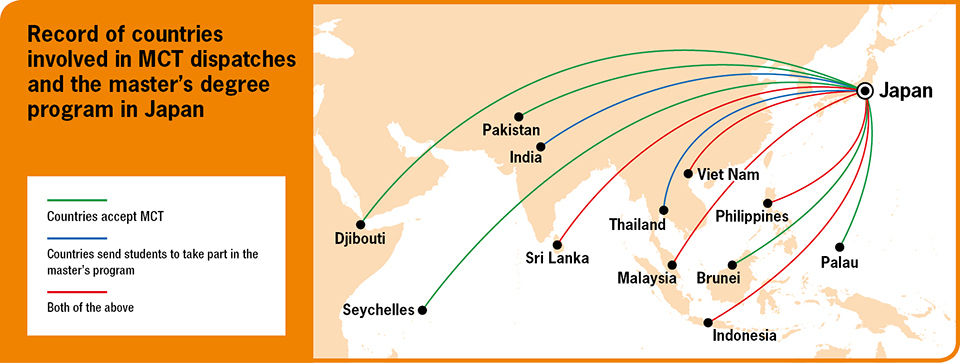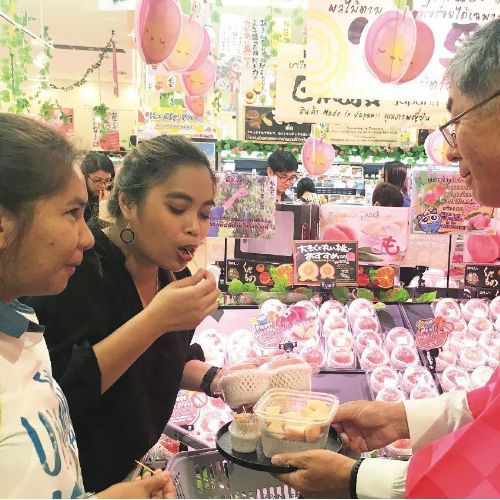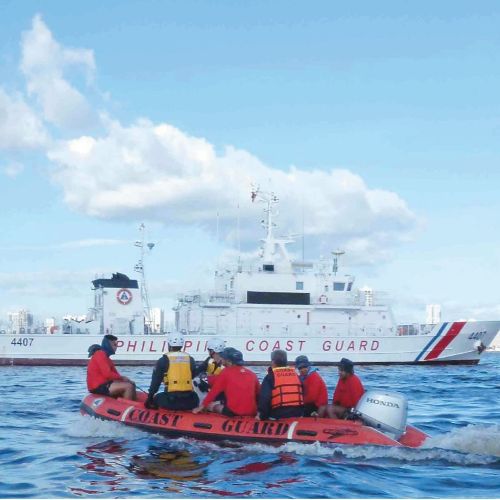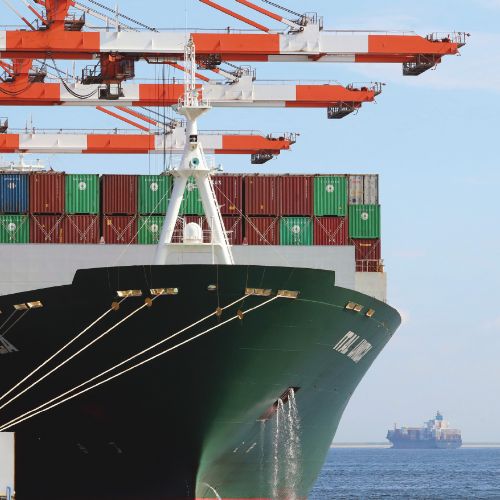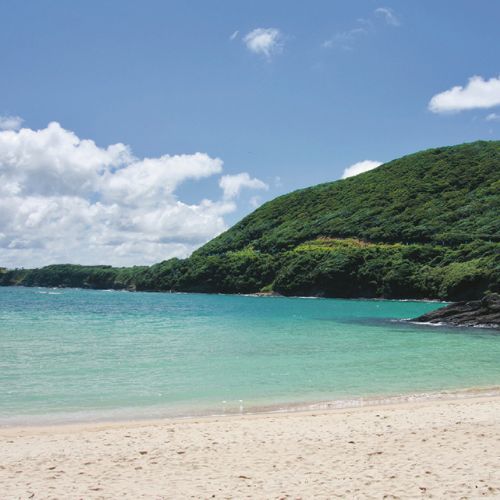The Japan Coast Guard is working to improve the capabilities of coast guard organizations’ with particular emphasis on those in the Indo-Pacific region. It aims to maintain the maritime order through the dispatch of specialist teams and the establishment of a master’s degree program.
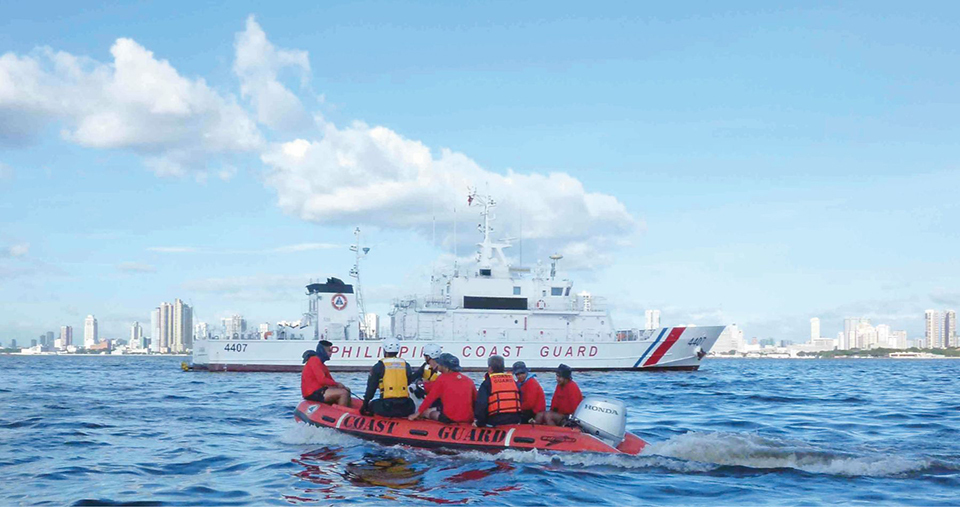
Rubber boat training for the Philippine Coast Guard in 2017. The white hull is one of the ships that Japan has granted since 2016.
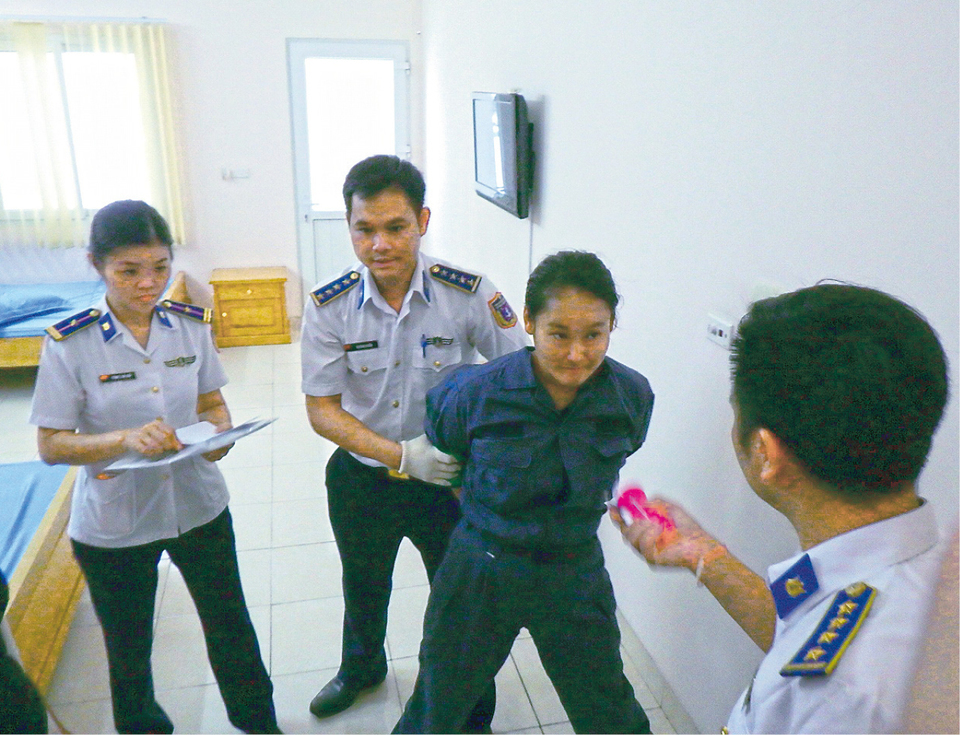
Yoshioka instructing Vietnamese maritime police officers during an on-board inspection.
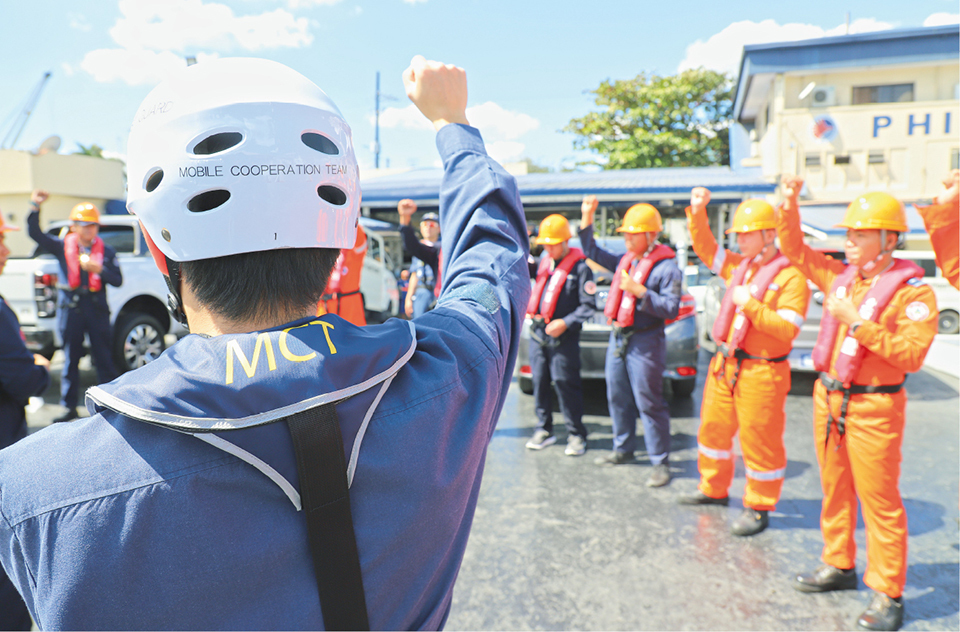
Formed in October 2017, the MCT is a group of professionals with special skills. The team provides customized training as per the wishes of other countries in Asia.
With the rise in maritime threats, such as terrorism, smuggling, and conflicts among nations over maritime interests, countries in the Indo-Pacific region have each set up new coast guard organizations aiming to maintain maritime order based on the rule of law and strengthening ties in the region. The model being used for such organizations is the Japan Coast Guard (JCG) established in 1948.
In October 2017, the JCG formed a dedicated team, called the Mobile Cooperation Team (MCT), to help improve the capabilities of local coast guards in other countries. MCT officials with specialist skills in search and rescue, maritime law enforcement and environmental disaster prevention are dispatched to these countries to give intensive training for one or two weeks.
As of September 2019, the MCT has so far been dispatched 34 times in 11 countries. In response to the growing demand from other countries, the number of officers has increased from 7 to 10 in 2019, with the first female dispatch coordinator, YOSHIOKA Yu, joining the team.
On being dispatched to Viet Nam in June, Yoshioka carried out body searches on female suspects during on-board inspections, and in August, she helped give instruction on cardiopulmonary resuscitation and search and rescue in Palau. “I think I’ve been able to contribute to the work of the MCT by sharing what I’ve done in the field with people from various countries,” explains Yoshioka.
While the JCG has been providing assistance to improve coast guard capabilities based on the demands from other countries over several decades, it was the establishment of a dedicated MCT that has made it possible to provide more continuous and effective support while building relationships of trust on a daily basis.
As well as providing this kind of support in the field, the JCG is also investing much time and manpower into developing coast guard officers. This work is manifested in the Maritime Safety and Security Policy Program, a master’s degree program for junior coast guard officers in Asian countries. In this one-year program, junior officers from the JCG and other coast guard organizations take courses in international law, international relations, maritime police policy, and other relevant subjects at the National Graduate Institute for Policy Studies and the Japan Coast Guard Academy. Along with international students from Asian countries, students learn how to deal with all the various issues that arise at sea, having the opportunity to acquire professional knowledge and analytical skills.
A total of 40 students have enrolled since the program first started in 2015. NOHARA Masako a female JCG junior officer who completed the program as a third-year student last year, says, “By talking with international students, we have learned about the systems and activities of coast guards from different countries, and have built a human network.”
With the globalization of maritime crime and the worsening scale of natural disasters, it is becoming increasingly difficult for individual countries to resolve maritime issues by themselves. Paying a courtesy visit to Japanese Prime Minister ABE Shinzo in August 2018, Glen B. Daraug, one of the first students from the Philippine Coast Guard, said, “In Japan, I was able to develop the decisiveness, dynamism and communication skills necessary for my work. The human network that has been created is something we treasure. We can continue to cultivate these precious ties, further strengthening the relationship of trust that exists between coast guards to ensure maritime order in accordance with international law.”
Through the work of the MCT and the master’s program, the JCG is building a network that spans borders, working to maintain maritime order worldwide.
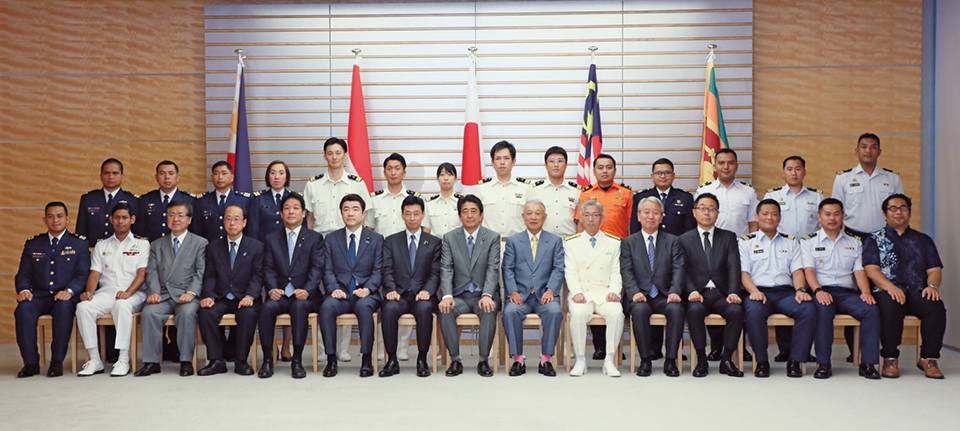
Graduates of the Maritime Safety and Security Policy Program from the Philippines, Indonesia, Japan, Malaysia, and Sri Lanka pay a courtesy visit to Prime Minister Abe (August 2018)
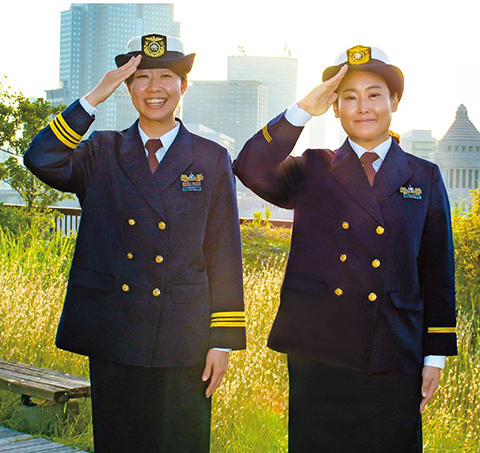
Coast guards who play an important role, such as the junior officer Nohara (left), and Yoshioka, who became the MCT’s first female coordinator, are being trained in large numbers. The ratio of female officers in JCG has nearly doubled in 10 years. “I want to try new things to be a role model for other women,” remarks Nohara.
